Cover Story
Growth-led opportunities

Khalid Ansari of KPMG Oman highlights the importance of cash flow management for companies to negotiate a challenging economic environment. Mayank Singh reports
 Looking back at 2016, what are your key takeaways in terms of Oman’s economy and the way the corporate sector has performed?
Looking back at 2016, what are your key takeaways in terms of Oman’s economy and the way the corporate sector has performed?
The year 2016 was a challenging year. There are certain sectors that still continue to perform well and they have not been hit in line with people’s expectations. The good sectors are banking, tourism and manufacturing. Most banks have posted good results, except for a few banks which have shown a dip in their bottom-line. By and large, the banking sector has done well and that’s one key indicator. Hospitality has also done well. The average room rates of hotel have been pretty high and the occupancies in five-star hotels have been good. Some of the companies in the manufacturing sector have also fared well, because of their bigger reach in the region and markets out of Oman. A favourable exchange rate in relation to the Pound and Euro may also have helped them in their unit cost of production. So overall, these three sectors have done fine despite the economy being under pressure.
The challenging sector has been construction. The reason why they have been under pressure is because of two things – one perhaps some of the mega projects have slowed down but more critical is the fact that the payment cycle of these companies have been affected. Lot of big construction companies are not being paid on time, as a result they are not paying their subcontractors and consequently the SMEs sectors are getting affected. Thus payment delays in the construction industry is a major challenge. Overall, I would say 2016 has closed out fair, because one has not seen any bankruptcies and no major company has gone out of business.
As we embark on 2017, are there a few major trends that you foresee?
The major trends in 2017 are going to be in three areas. One is diversification from oil and gas. With oil prices being low, that is the government’s priority and intention. The process of diversification has been given more impetus because of the Tanfeedh programme and once Tanfeedh starts getting implemented the process of diversification will get a boost. The third is the government’s plan for public private partnership (PPPs). So far the government has been leading the projects, but now the private sector has to take the lead and drive projects, rather than depending upon the government.
With OPEC cutting oil production and expectations of an oil price rise, is it time for companies to start thinking differently compared to the way they negotiated 2015 and 2016?
That would be a bit premature. The pressure will still be there and companies should go ahead and operate on the basis of low oil prices. They should use the opportunity to improve their core business and focus on cash flows. If oil prices go up then it will be a bonus, and they can book their profits. Those businesses which manage to focus on their core business and manage their cash flows will overcome the challenge.
What are the opportunities and challenges that businesses need to be aware of in 2017?
There are a lot of opportunities. The first opportunity is going to come out of Tanfeedh. Tanfeedh group have identified 120 projects and even if 20 per cent of those are fully implemented, it will be a good progress. The second big opportunity is going to come out of the PPPs, on which the government is committed to implement, and the laws are being changed to encourage the private sector to take a lead. There are success stories already in the PPP model such as power sector. The third big opportunity is the affordable housing project. Once it is implemented, it is going to be a game changer for the economy. The fourth opportunity is SME. However, this opportunity needs to be further enhanced. Already a lot of efforts have gone into the Al Raffd and other SME funds and now it is time to start scaling up the businesses of the SMEs. The fifth opportunity comes in the form of the sectors that the government has identified for diversification like tourism, logistics, manufacturing, fisheries and mining. There will be opportunities in these sectors.
In terms of challenges there are two challenges – one is cash flow and delayed payments; the whole cycle of delays will cause problems for companies by putting pressure on payments, resulting in inability to keep up with the commitments made to banks and lenders. Cash flow management is one big challenge. The second challenge is manpower regulation. There is always a pressure of recruiting people at the right time and right number to complete a project on time and the challenge is making it faster as the delays prevent companies from recruiting faster, hence lost opportunities.
As KPMG, how are you advising and helping clients to come to terms with changes in the business environment, regulatory norms, taxation etc.?
One is the use of technology. A good way of dealing with manpower problems is to use technology. Oman has a good technological base. More effective use of technology will enhance e-commerce, digitisation etc. There is a lot of manual work which can easily be converted. KPMG has expertise in this area and we are ready to help our clients.
In terms of other areas like VAT, we are gearing up our team to face implementation challenges. The bigger companies will have systems and resources in place to implement process and procedures to implement VAT. The small and mid-sized companies will have a challenge, as their accounting and booking systems are inadequate. We have developed a team with tax and Business Process Management (BPM) specialists, so that we can assist our clients.
The other area where we are helping clients is in streamlining their process to become more efficient. If there is fat in the system and there is surplus capacity, then it should be utilised elsewhere for improved results.
There are two other areas where we are helping our clients: one is helping companies with their strategy, looking at what is their strategy is going to be in the next three to four years. We emphasise on two things: ‘build up business with ethical dealings; try to put your business ethics as core value, especially in dealing with employees.’ Managers need to realise that employees are the asset of an organisation and not taking care of them is likely to destroy the business in the long run. The other emphasis is ‘be honest with your lender, because banks are a major stakeholder in any organisation.’ While a shareholder puts capital in a company, banks probably invest three times that amount. So if an organisation has a problem, they should be honest with their bankers and together develop a solution, rather than shy away from problems or mislead the bankers.
The final overriding point that we tell our clients is to manage their cash flows. I believe that all those companies which manage their cash flows well, will ride through the challenging time and they will be ready for the next upsurge in the economy. The name of the game in 2017 will be cash flow management.
-

 OER Magazines1 month ago
OER Magazines1 month agoDossier – ToP 25 Personalities 2025
-
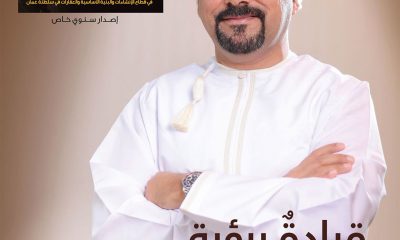
 Dossier1 month ago
Dossier1 month agoArabic Dossier – ToP 25 Personalities 2025
-
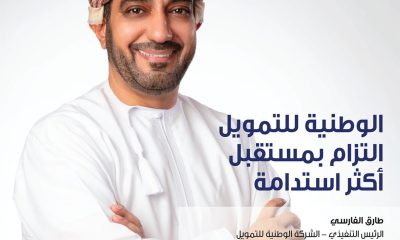
 Alamaliktistaad Magazines1 month ago
Alamaliktistaad Magazines1 month agoAl-iktisaad, August 25
-
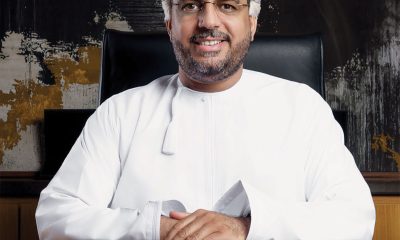
 OER Magazines1 month ago
OER Magazines1 month agoOER, August 2025
-

 News2 months ago
News2 months agoxAI Open-Sources Grok 2.5, Signaling Accelerated AI Push
-
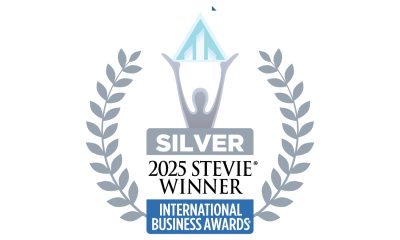
 News2 months ago
News2 months agoOoredoo Wins Silver Stevie® Award for Diversity and Inclusion Excellence
-

 Entertainment1 month ago
Entertainment1 month agoHere’s a Complete Overview of the 2025/2026 Season at the Royal Opera House Muscat
-
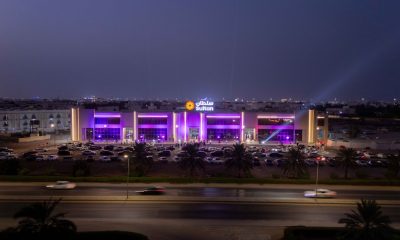
 News1 month ago
News1 month agoSultan Center Unveils Flagship Al Hail Store, Elevating Premium Retail Experience in Oman
































You must be logged in to post a comment Login